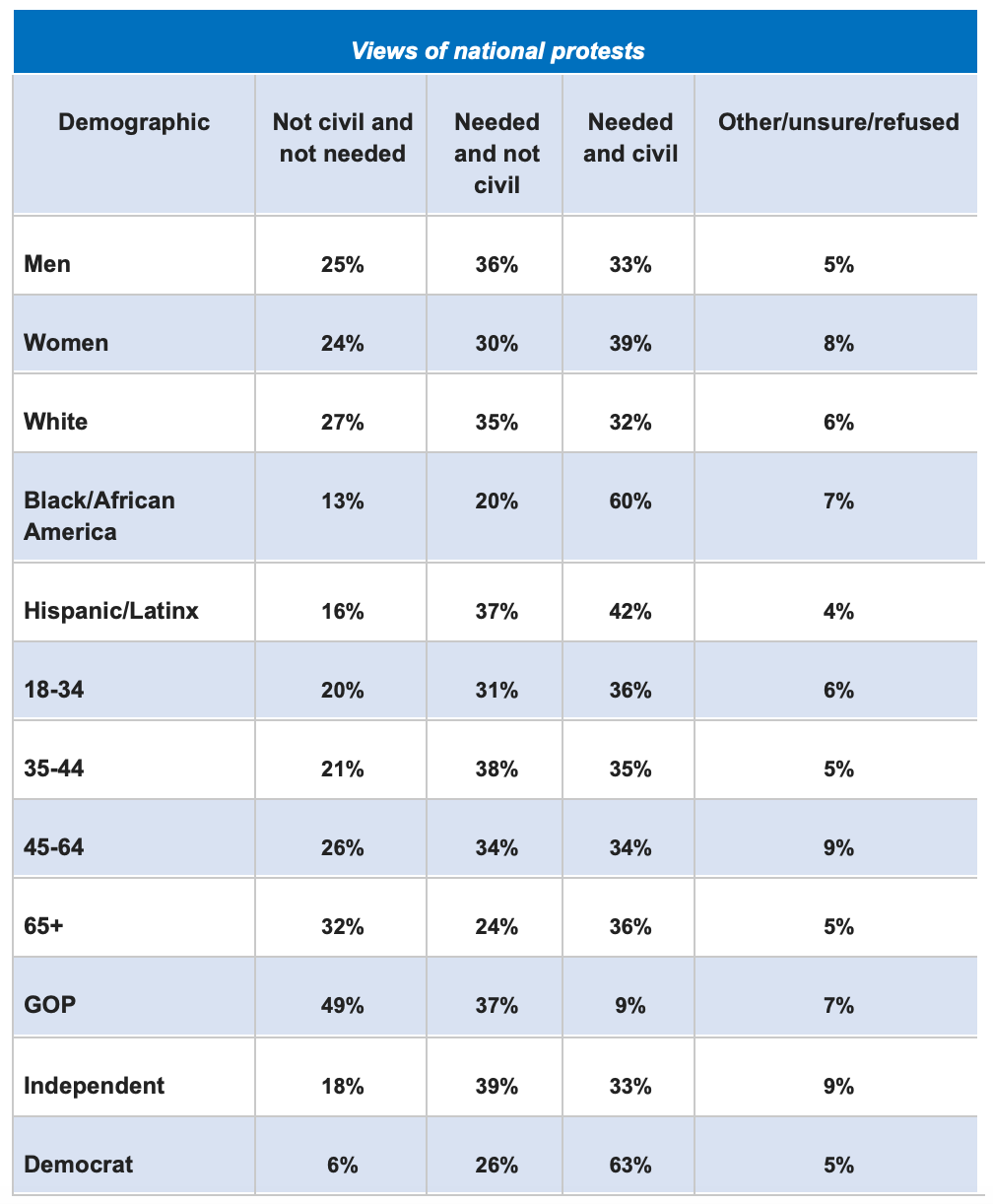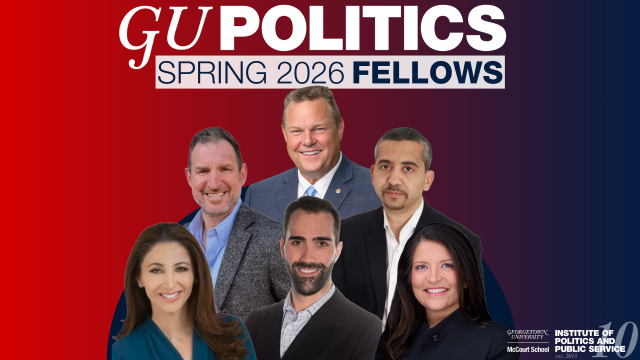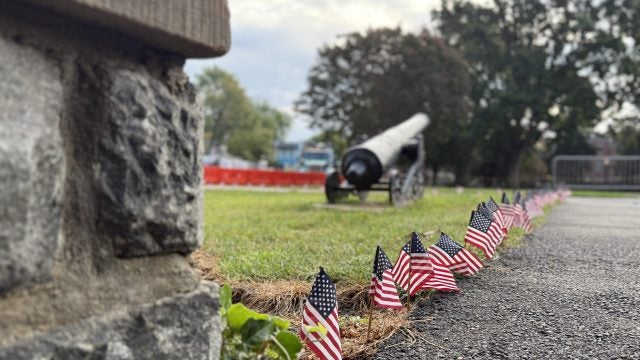Title: NEW POLL: 2020 Pandemic, Summer Protests Unite Americans In Believing We Have Become More Divided
Majority Of Americans Believe Country Has Become Less Civil Since COVID-19 Pandemic
Overwhelming 70% of Country Believes Racial Protests Were Needed — But Voters Sharply Divided Along Partisan And Racial Lines On Civility Of The Protests
WASHINGTON, D.C. – A majority of Americans believe the country has become more divided in 2020 due to the COVID-19 pandemic and the racial and social justice protests sweeping the country, according to the Georgetown Institute of Politics and Public Service Battleground Civility Poll, the second component of the Battleground Poll.
Rather than see the country put politics aside and unite behind common purpose in the face of the pandemic, most voters believe that the crisis has only exacerbated existing political polarization. Majorities of Republicans (61%), Independents (63%), and Democrats (55%) all thought politics grew less civil over the summer. And, most voters (59%) think things have gotten less civil during the COVID-19 crisis overall. When responses were broken down by economic class, middle- and working-class voters were the most likely to say politics have become less civil since COVID-19.
Seventy percent of voters sympathize with the cause of the summer protests. However, our poll saw a stark split between Democrats and Republicans, and between Black and White respondents, on whether the protests were needed and civil. Looking further into geographic area breakdowns, there is greater variance in attitudes depending on whether voters live in rural, suburban, or urban areas. At 32%, rural voters are far more likely to feel that the protests are both not needed and not civil, whereas far fewer urban voters feel the same (14%).
Voter concern is underscored when they are asked to rate the level of division in the country. On a scale of 0-100, where “0” means there is no political division in the country and “100” means that the level of political division is on the edge of a civil war, voters responded with a mean score of 73.2. This number has grown worse from where voters saw the country in October 2019, when they ranked the level of political division at a mean of 67.2. These numbers currently are steady across gender, age, and race, and there is only modest variance along partisan lines.
“The events over the last six months have brought out some of the deepest divides our nation has seen in decades. While voters are clear in their frustration with the current level of political polarization, they are just as divided on some of these issues as our political leaders are, believing that their political opponents are acting in bad faith,” said Mo Elleithee, Executive Director of the Georgetown Institute of Politics and Public Service. “That dynamic is unlikely to change dramatically ahead of the 2020 election, and could make efforts to detoxify our political discourse more complicated.”
See the below table for a detailed breakdown of the view of national protests.

The Georgetown Institute of Politics and Public Service Battleground Civility Poll is the second component of the Battleground Poll, believed to be one of the first national polls of registered voters gauging opinion on the state of civility in our national political conversation. The results give a sense of voter sentiment on the state of our discourse and how good or bad voters believe it to be.
Democratic Analysis
“The beginning of August sees the United States in the midst of a worsening pandemic, deepening economic recession, and ongoing nationwide protests against the epidemic of police violence against Black Americans—all as the political arena continues to lose any semblance of civility and the country’s elected leaders struggle to pass basic legislation to meet the material needs of the American people,” said Celinda Lake, a Democratic pollster with Lake Research Partners.
“Ultimately, this data paints a picture of an electorate hyper-aware of the fracturing of the country’s polity and losing hope in the ability of their leaders to offer solutions—even as the impact of the pandemic grows more dire. While a majority believes that there is a need for a national conversation about race, a majority of voters also believe that the current methods of protest are not civil. The only thing that voters across party and race can agree on is that this country is divided and that the divisions are growing worse.”
Republican Analysis
“This broad and wide ranging belief illustrates the corrosive nature of these partisan battles over policy solutions for this crisis. This is not a case of one side being frustrated that the other side is acting in bad faith, but rather an overarching belief across the political spectrum that all sides think their political opponents are acting in bad faith.
“We continue to have the opportunity to unite around the common enemy of the COVID-19 crisis and find solutions to our political, ideological, and racial differences that do not involve protests sometimes even descending into violent outbursts,” said Ed Goeas of the Tarrance Group. “However, as we noted in the analysis of the political questions for this survey, the best path to victory for the Trump campaign is to try to return to the dynamics of the 2016 campaign in party by offering a sharp critique of Biden and increasing his unfavorable ratings. This tactic would almost certainly lead to allies of Biden offering sharp criticisms of President Trump.
“Having the national political conversation focused on the negative qualities and past mistakes of both Trump and Biden does not lend itself well to seeing an improvement in any of these civility measures. While some may see this as optimism triumphing over facts, we continue to believe that politicians on all sides will come together soon to improve the level of civility in politics.”
- See the questionnaire, charts, tables and analysis here.
- Academics, researchers and journalists can also access the full dataset to assist in their own research and analyses. [Note: Any use of this data and material must credit the Georgetown Institute of Politics and Public Service Battleground Civility Poll.]
ABOUT THE GEORGETOWN INSTITUTE OF POLITICS AND PUBLIC SERVICE BATTLEGROUND POLL:
The Georgetown Institute of Politics and Public Service (GU Politics) Battleground Poll is a national bipartisan survey measuring political opinion and civility among registered voters in the United States. Produced by Republican strategist Ed Goeas of The Tarrance Group and Democratic strategist Celinda Lake of Lake Research Partners, this polling series offers unique polling analysis and insights from two top pollsters from different sides of the aisle.
Initiated in June 1991, and housed at GU Politics since April 2019, the Battleground Polls have gained widespread media recognition as reliable bellwethers of national opinion and voters’ intentions. The Battleground data projected the outcome of the 1992, 1996, and 2004 presidential race more precisely than any other similar effort in the country, including those of the major TV networks and national newspapers. In addition, Battleground Polls have consistently been major predictors of what is going to happen in approaching Congressional elections.
The Civility Poll was added as a component of the Battleground in conjunction with the announcement of the GU Politics partnership in early 2019.
ABOUT THE INSTITUTE OF POLITICS AND PUBLIC SERVICE:
The Institute of Politics and Public Service (GU Politics) connects and empowers students and the broader community to improve and reimagine politics and public service and reaffirm its promise. Founded as part of the McCourt School of Public Policy in the fall of 2015, GU Politics programming is open to the entire Georgetown community.
ABOUT THE MCCOURT SCHOOL OF PUBLIC POLICY:
The Georgetown University McCourt School of Public Policy is a top-ranked public policy school located in Washington, D.C., the heart of the policy world. The McCourt School’s mission is to teach our students to design, analyze, and implement smart policies and put them into practice in the public, private, and nonprofit sectors, in the U.S. and around the world.
More News

As we hit the halfway point of our 10th anniversary year, we are excited to introduce the Georgetown Institute of Politics and Public Service (GU Politics) Spring 2026…

GU Politics is thrilled to announce a new member joining our Advisory Board. Izzy Klein (C’99) will join a board of public servants, political…

Friends – The horrific murder of conservative activist Charlie Kirk yesterday was shocking and devastating. I didn’t know Charlie well, but I did know…